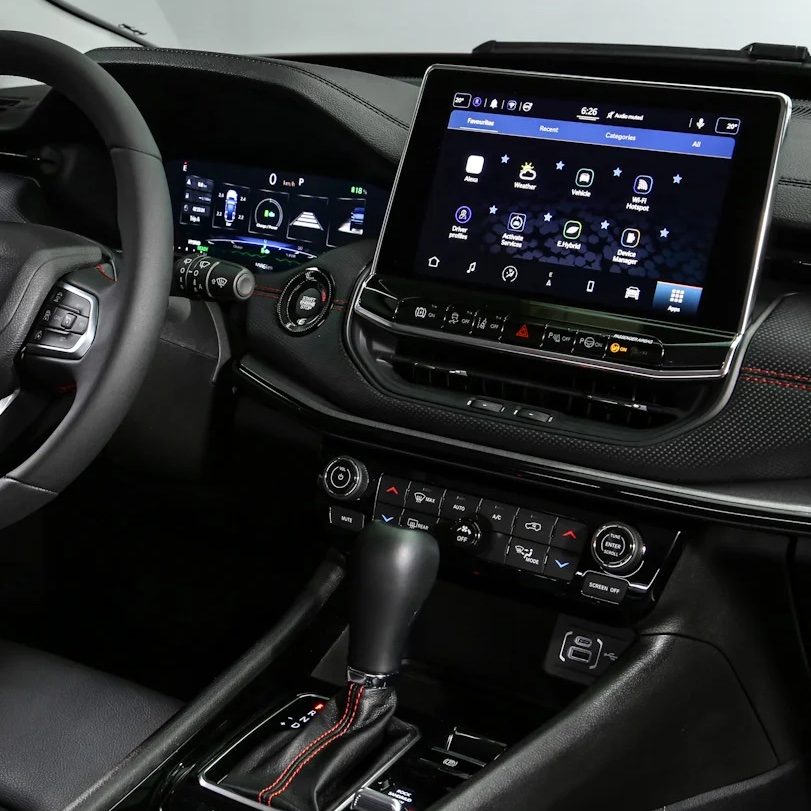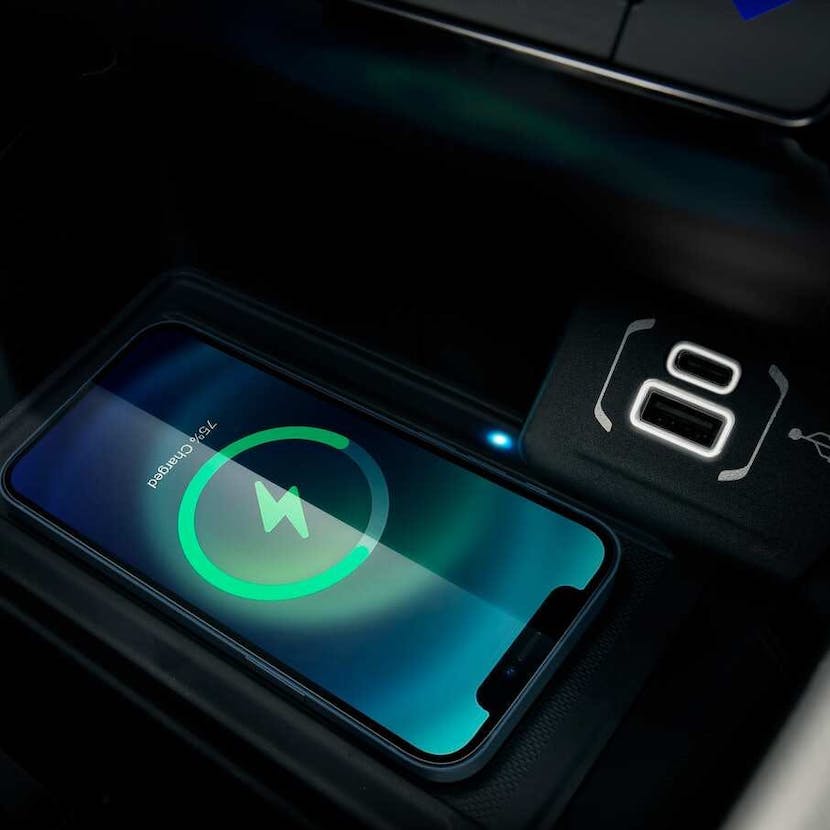Introduction to Jeep Compass Leasing
Leasing a Jeep Compass offers a smart way to drive a new SUV with less commitment compared to buying. A lease is a contract where you pay to use the vehicle for a specific time. You do not own the Jeep, but have the right to use it. Let’s break down what a Jeep Compass lease involves.
When you lease a Jeep Compass, you agree to keep it for a set period, usually two to three years. In return, you make monthly payments. These payments are often lower than loan payments for buying a car. At the end of the lease, you return the Jeep or choose to buy it.
A Jeep Compass lease can come with many benefits. You get to enjoy driving a new model every few years. You also avoid the long-term maintenance issues that can come with older cars. Plus, a lease often includes a warranty that covers most repairs.
By understanding the basics of a Jeep Compass lease, you can make an informed decision. In the following sections, we will discuss the benefits, costs, tips, and important considerations for leasing a Jeep Compass. Stay tuned to ensure you get the best deal on your next vehicle.
Benefits of Leasing a Jeep Compass
Leasing a Jeep Compass comes with several advantages. First, you enjoy lower monthly payments than buying outright. This makes it easier on your budget. You also get to drive a brand-new Jeep every few years. This means you always have the latest features and technology. Another benefit is avoiding the depreciation hit that comes with ownership. Cars lose value quickly, but with a lease, it’s not your concern.
Leasing can also mean fewer worries about repairs. Most leases include a warranty that covers major issues. You won’t face high costs for unexpected problems. Plus, for those who love feeling current and stylish, leasing ensures you’re never behind the wheel of an outdated model. Finally, leasing a Jeep Compass can be great for business use. It may offer tax advantages compared to buying a vehicle.
These benefits make a Jeep Compass lease an appealing option for many drivers. It’s worth considering if you prefer flexibility and less hassle over vehicle ownership. Remember to factor these advantages into your decision when exploring a Jeep Compass lease.
Costs Involved in Leasing a Jeep Compass
When considering a Jeep Compass lease, you need to understand the costs involved. These expenses can affect your budget and your decision. Here’s a breakdown of the typical costs associated with a Jeep Compass lease:
- Monthly Payments: This is the amount you pay each month. It’s usually lower than loan payments for a car purchase.
- Down Payment: Some leases require a down payment at the start. This upfront cost can vary widely.
- Taxes and Fees: Expect to pay taxes on your lease. Fees might include registration, acquisition and documentation costs.
- Insurance: You’ll need full coverage insurance for your leased Jeep Compass. Insurance costs can differ based on personal factors.
- Mileage Limits: Leases have mileage caps. If you exceed the limit, you’ll owe money for extra miles.
- Wear and Tear: Leasing companies charge for damage beyond normal wear and tear.
- Disposition Fee: At the end of your lease, this fee covers vehicle inspection and resale preparations.
Don’t forget to include these costs in your budget when planning a Jeep Compass lease. By doing so, you’ll avoid surprises and be financially prepared for your leasing journey.
How to Find the Best Jeep Compass Lease Deals
Finding the best Jeep Compass lease deals involves research and timing. Start by looking at different dealerships. Compare their lease offers on Jeep Compass models. Pay attention to the lease terms, monthly payment amounts, down payment requirements, and any additional fees. Be on the lookout for special promotions. Dealers often have lease specials during holidays or at model year-end clearances.
Next, don’t be afraid to negotiate. Even lease deals can have some wiggle room. Talk about lowering the down payment or monthly payments. Ask about any hidden fees and make sure they are waived or reduced. It’s also a good idea to negotiate the mileage cap to fit your driving needs better.
Another tip is to check your credit score beforehand. A good credit score can secure lower interest rates, which translates to lower monthly payments. If your credit score is not great, take steps to improve it before you negotiate your lease.
Lastly, consider using lease comparison websites. These can quickly show you deals from various dealers and leasing companies. Remember to factor in the entire cost of the lease when comparing deals. Look at customer reviews to learn about others’ experiences with the dealership or leasing company.
By doing your homework and being prepared, you can find the best Jeep Compass lease deal for your situation. Keep these steps in mind as you start your search, and take control of your leasing process.
Key Considerations Before Signing a Jeep Compass Lease
Before you commit to a Jeep Compass lease, it is vital to weigh certain factors. Here are key considerations to help you decide if leasing is the best choice for you:
- Budget: Assess if the monthly lease payments align with your budget. Consider the long-term affordability.
- Driving Habits: Think about how much you drive. A lease has a mileage limit. If you exceed it, you pay more.
- Future Changes: Will your need for a car change soon? A lease locks you in for a few years.
- Vehicle Customizations: Leasing a Jeep Compass means little room for customization. You must return the car as leased.
- Early Termination Costs: Exiting a lease early can be expensive. Understand the penalties involved.
- Gap Insurance: This covers the difference if the Jeep is totaled. Check if it’s included or an extra cost.
Make sure you’re comfortable with every aspect of the lease agreement. A hasty decision can bring unwanted stress and costs. Take your time to think it over.
Tips for Negotiating Your Jeep Compass Lease
Negotiating a Jeep Compass lease can help you secure a better deal. Here are some effective tips:
- Do Your Homework: Research the market. Know the average costs for a Jeep Compass lease. This knowledge is power during negotiations.
- Be Clear About Your Needs: Before you talk to the dealer, decide on your needs. Include the model, features, and mileage you want. Stick to these to avoid overspending.
- Compare Offers: Get lease quotes from different dealers. Use these as leverage to negotiate better terms.
- Mind the Timing: Dealers may be more willing to negotiate at the end of the month or year. Their sales goals make them more flexible.
- Talk Total Cost: Focus on the total lease cost, not just monthly payments. A low monthly payment may come with higher fees elsewhere.
- Capitalize on Competition: Let the dealer know you’re considering multiple offers. They may offer better terms to secure your business.
- Understand Your Credits: A good credit score means better leverage. Show your score to push for a better deal.
- Negotiate End-of-Lease Charges: Discuss the disposition fee and wear and tear charges. Try to reduce them up front.
- Ask for More Miles: If you drive a lot, negotiate a higher mileage limit. This may save you from overage fees later.
By using these tips, you can negotiate a Jeep Compass lease that fits your budget and needs. Remember, the goal is to walk away with a deal you feel good about.
Understanding Lease Terms and Conditions
When leasing a Jeep Compass, it’s crucial to grasp the lease terms and conditions. These can impact your lease experience. Here’s what to look out for:
- Lease Duration: Know how long your lease will last. Most are 2 to 3 years.
- Residual Value: This is the car’s value at lease end. It affects buyout options.
- Monthly Lease Payment: Confirm the payment amount. Make sure it fits your budget.
- Additional Fees: Be aware of fees for registration, documentation, and acquisition.
- Mileage Limit: Check the annual mile cap. Consider if it matches your driving needs.
- Excess Mileage Charge: Learn the cost per extra mile over the limit. It adds up.
- Maintenance Responsibilities: Understand what maintenance you must cover.
- Lease Termination Clause: Know the conditions and costs for ending the lease early.
- End-of-Lease Charges: Expect charges for excess wear and tear or damages.
By understanding these terms, you can avoid future surprises. Make sure you ask questions if something is unclear. Read the lease agreement carefully before signing. This ensures you know exactly what you’re agreeing to with your Jeep Compass lease.
Ending Your Jeep Compass Lease: Options and Obligations
As your Jeep Compass lease comes to an end, you have several options and obligations to consider. Understanding these can help you make a smooth transition and avoid extra costs. Here’s what you need to know:
- Return the Vehicle: Typically, you can return the Jeep to the dealership. They will check it for excess wear and use. Any damage beyond the normal, you may owe additional fees.
- Lease Buyout: You might have the choice to buy the Jeep at a predetermined price. This amount is the residual value mentioned in your contract. If you love the car, this could be a good deal.
- Lease Extension: Some dealers allow you to extend your lease. This can give you more time to decide or wait for a new model release.
- Excess Mileage Fees: If you drove more than the agreed mileage, prepare to pay. The cost per extra mile is in your lease agreement.
- Disposal Fee: Also known as a turn-in fee, expect to pay this when you return the Jeep. It covers the dealer’s cost to sell the car again.
- End-of-Lease Inspection: Arrange this inspection ahead of time. Doing so helps you to know if there are any issues to address before return.
- New Lease or Purchase: Consider if you will lease a new Jeep Compass or buy another vehicle. Starting early gives you more options.
Meet all terms of your lease to avoid penalties. Review your contract early to understand all your end-of-lease obligations. This way, when your Jeep Compass lease ends, you are ready to make the best choice.



